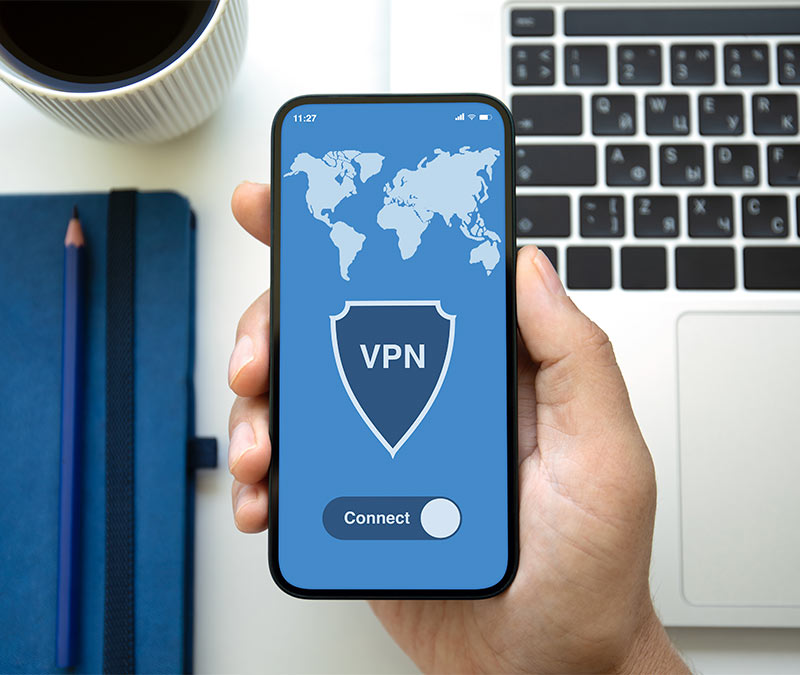How a VPN can help you now that net neutrality is dead
With the end of net neutrality, ISPs can now block, throttle or put data in slow and fast lanes. Find out how a VPN can help you navigate these changes.

As of June 11, 2018, U.S. net neutrality rules expired, and new regulations took effect giving Internet Service Providers (ISPs) broad new powers over how consumers can access the internet.
That means the law that mandated ISPs treat all data on the internet the same way ceased to exist. Net neutrality was the law that prevented ISPs — like large cable and telephone companies — from blocking, throttling the loading speed of, or discriminating against any form of legal content on the internet.

The freedom to connect more securely to Wi-Fi anywhere
With Norton™ VPN, check email, interact on social media and pay bills using public Wi-Fi without worrying about cybercriminals stealing your private information
Try Norton VPN for peace of mind when you connect online
The Federal Communications Commission (FCC) repealed regulations that prevented ISPs from controlling the speed of internet access and the availability of websites and their services to customers. As an ISP customer, this could mean you will see a lot of changes in the way you experience the internet.
The two sides of the net neutrality story
As with any story, there are two sides when it comes to net neutrality.
Pro net neutrality
Those in favor of net neutrality believe in the principle that the internet should be equally available to everyone. ISPs should not be allowed to block, slow down, or charge extra for access to certain websites or services. For example, your ISP should provide the same bandwidth for a well-known service like YouTube as it does for your personal blog page, without favoring one type of content over the other.
Anti net neutrality
Opponents of net neutrality believe that eliminating net neutrality will free up more financial resources for ISPs to invest in improving internet access in underserved areas. This could lead to more development and better services in the ISP sector, and could potentially benefit internet users in the long run.
What does the end of net neutrality mean to you?
The repeal of net neutrality could mean more power for ISPs and cable companies. Service providers can now regulate internet traffic as they deem fit. They have the right to block certain content from reaching their customers. They could slow down or block content from their competitors to favor content from their own organization. All this could also lead to an increase in fees for accessing the internet.
Using a VPN after the net neutrality repeal
A virtual private network (VPN) makes a Wi-Fi network private, whether it’s in your home or at a coffee shop. A VPN masks your IP address and establishes a secure and encrypted connection. After the end of net neutrality, ISPs can track your IP address to observe your browsing history and to enforce throttling as they see fit. A VPN has the potential to provide anonymity and prevent ISPs from tracking your activity. What they can’t see, they can’t control.
The key is to get a no-log VPN, such as Norton VPN. With this type of VPN, the provider doesn’t save any information — like your personal details, where you go online, what you download, or what you search for. Therefore, your privacy and anonymity are protected from everybody — even your VPN provider.
Can ISPs throttle the speed of VPN traffic?
ISPs can see your IP address when you use a VPN. But thanks to encryption, they can’t see what data you’re accessing or sending.
ISPs may have the power to throttle bandwidth and slow down VPN traffic or whitelist certain websites. However, that would be a big task to enforce. Many companies and government offices use VPNs to secure their data. It would be a huge undertaking for ISPs to throttle traffic on all VPNs.
The repeal of net neutrality is an important milestone in the history of the internet. But knowledge is power. You can act to protect your online freedom by being proactive and better understanding how a VPN, like Norton VPN, can help shield your information.
Click here to learn more about how Norton VPN:
- prevents companies from tracking your browsing history;
- protects your connections on home and public Wi-Fi;
- blocks annoying ads;
- and lets you access your favorite content while traveling.
Or download Norton VPN from the app store now.

Use public Wi-Fi? Help protect your data with Norton VPN bank-grade encryption
With Norton VPN, an encrypted data tunnel helps prevent cybercriminals from hacking into your Wi-Fi connection and intercepting the data you send and receive.
Enjoy a more secure and private online experience when you connect with Norton VPN
Editorial note: Our articles provide educational information for you. Our offerings may not cover or protect against every type of crime, fraud, or threat we write about. Our goal is to increase awareness about Cyber Safety. Please review complete Terms during enrollment or setup. Remember that no one can prevent all identity theft or cybercrime, and that LifeLock does not monitor all transactions at all businesses. The Norton and LifeLock brands are part of Gen Digital Inc.





Want more?
Follow us for all the latest news, tips, and updates.